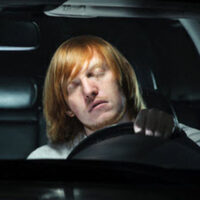The Five Kinds of Driving Impairment

Human error accounts for over 90 percent of the vehicle collisions in Florida. Sometimes, that error involves an operational mistake, such as speeding or making an illegal turn. Frequently, the error involves driver behavior. In fact, many drivers know they are impaired before they get behind the wheel, yet they choose to drive anyway.
That intentional disregard for the health and safety of others enables a Tampa car accident attorney to obtain substantial compensation for impairment-related crash victims. This compensation usually includes money for economic losses, such as medical bills, and noneconomic losses, such as pain and suffering. Additional punitive damages might be available, in some extreme situations.
Alcohol
Despite a decades-long crackdown against “drunk drivers,” alcohol still causes about a third of the fatal car crashes in Hillsborough County. Alcohol is a depressant which slows motor skills and clouds judgement. These qualities might make alcohol ideal at some parties, but they make it very dangerous to drink and drive.
In terms of liability, most alcohol-related crashes involve DUI arrests. These tortfeasors (negligent drivers) might be liable for damages as a matter of law. Most people are intoxicated after three or four drinks, But dangerous impairment begins with the first drink. Circumstantial evidence of impairment includes:
- Erratic driving prior to the crash,
- Bloodshot eyes,
- Slurred speech,
- Unsteady balance, and
- Tortfeasor’s statements about alcohol consumption.
In circumstantial evidence claims, victim/plaintiffs must establish negligence, or a lack of care, by a preponderance of the evidence, or more likely than not.
Drowsiness
Alcohol and fatigue have roughly the same effect on the brain and body. As a matter of fact, driving after eighteen hours without sleep is like driving with a .05 BAC. Some people are chronologically well-rested but still dangerously fatigued. For example, most people are naturally drowsy early in the morning and late at night. And, many people suffer from sleep apnea. This condition deprives people of deep, restorative sleep.
Drugs
In many jurisdictions, there are more “stoned” drivers than “drunk” drivers. Marijuana and prescription pain pills are the most common impairing substances. These substances might be legal to take. But it is illegal; and dangerous to drive while under their influence.
Many of the same alcohol impairment principles apply to drug impairment. Tortfeasors who are arrested for DUI-drugs are usually liable for damages as a matter of law. As for impairment, one puff or pill is usually sufficient.
Medical Condition
Conditions such as epilepsy and diabetes, which could cause a sudden loss of consciousness, are extremely common. If tortfeasors black out behind the wheel, even for a moment, the results could be tragic. Chronic medical conditions like these usually trigger drivers’ license suspension. The negligence per se rule, which is violation of a safety statute, normally applies in these cases. In other situations, medical records are more than enough to establish a lack of reasonable care, at least in most cases.
Distraction
Florida lawmakers recently approved a cell phone ban, mostly because these gadgets combine all three forms of distracted driving, which are:
- Manual (hand off the wheel),
- Visual (eyes off the road), and
- Cognitive (mind off driving).
Hands-free devices, while technically legal, are at least as dangerous. These devices are visually and cognitively distracting. Additionally, such gadgets give many drivers a false sense of security. So, they take unnecessary risks. Other forms of distracted driving include arguing with passengers while driving or eating a meal while driving.
Reach Out to a Dedicated Attorney
Impaired drivers often cause serious injuries. For a free consultation with an experienced personal injury attorney in Tampa, contact Mark H. Wright, PLLC. We do not charge upfront legal fees in negligence cases.
Resource:
cyberlaw.stanford.edu/blog/2013/12/human-error-cause-vehicle-crashes
